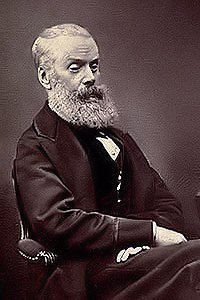Introduction

Born: December 15, 1808, Blackley Hurst, near Billinge, Lancashire, England.
Died: February 15/16, 1872, Westminster, London, England.
Buried: Brompton Cemetery, London, England.
Pseudonym: Paul Dell.

Born: December 15, 1808, Blackley Hurst, near Billinge, Lancashire, England.
Died: February 15/16, 1872, Westminster, London, England.
Buried: Brompton Cemetery, London, England.
Pseudonym: Paul Dell.
Son of an iron worker and lock maker, Chorley moved with his family to Liverpool after his father’s death in 1816.
He was educated by private tutors in Liverpool and at the school of the Royal Institution. His youth was shaped partly by time spent in the household of the wealthy and intellectual Mrs. Benson Rathbone of Green Bank. He became a close friend of her son Benson, who died in an accident in 1834.
Chorley began writing for the London Athenæum in 1830, and was the paper’s music critic and literary reviewer until 1868. He also became music critic for the London Times and wrote, for these and other journals, reviews and musical gossip columns, discussing composers and performers in Britain and on the European continent.
He was quite conservative, and was a persistent opponent of innovation, but was a lively chronicler of London life. In the Athenæum and elsewhere, Chorley often criticized the music of Schumann and Wagner for what he called decadence.
In 1850 and 1851, Chorley edited the Ladies’ Companion, which covered fashion and domestic women’s issues.
Chorley was also a journalist, novelist, playwright, poet, and opera librettist. One of his best known pieces was his obituary of Ivan Turgenev, mistakenly written while the Russian author was still very much alive. Turgenev was not offended by the error nearly as much as he was by the critical opinions of his work Chorley gave in the obituary.
Chorley was considered eccentric and abrasive, but was respected for his integrity and kindness. He enthusiastically gave and attended dinner parties, and cultivated friendships with Elizabeth Barrett, Felix Mendelssohn, Charles Dickens, Arthur Sullivan and Charles Santley.
After the death of his brother, John Rutter Chorley (1806–1867), Henry inherited enough money to retire from the Athenæum, though he continued to contribute articles for that paper and for The Orchestra.
In spite of Chorley’s efforts to promote the music of Charles Gounod in England, the composer disliked Chorley intensely. When Gounod lived in England in the early 1870’s, he wrote a satirical piano piece intended to be a parody of Chorley’s personality.
It greatly amused Gounod’s English patron, Georgina Weldon, who described Chorley as having a thin, sour, high-pitched sopranish voice
and moving like a stuffed red-haired monkey.
Gounod intended to publish the piece with a dedication to Chorley, but died before this was possible. Weldon then invented a new program for the piece, which was re-titled Funeral March of a Marionette.
It became popular as a concert piece, and in the 1950s, its opening phrases became well known as the theme music for the television program Alfred Hitchcock Presents.